Welcome Back to the reading series
FORENSIC LENSES
Bringing you the best of the reading experience.
There are those who read. Then there’s the avid readers. Beyond that, you have the chronic bookworms and voracious readers who set themselves apart from the pack. After reading this article, you’ll discover a person who is altogether in another realm when it comes to reading voracity.

Forensic Lenses seeks to discover the rich reading experience accumulated deep in the wells of the human heart. Taking an investigative and exploratory approach, case by case, I hope you’ll join me in this exciting journey.

BOOKS, BOOKS, AND MORE BOOKS!
EVERYBODY PLEASE WELCOME
RAYNE HALL
and Sulu the Cat
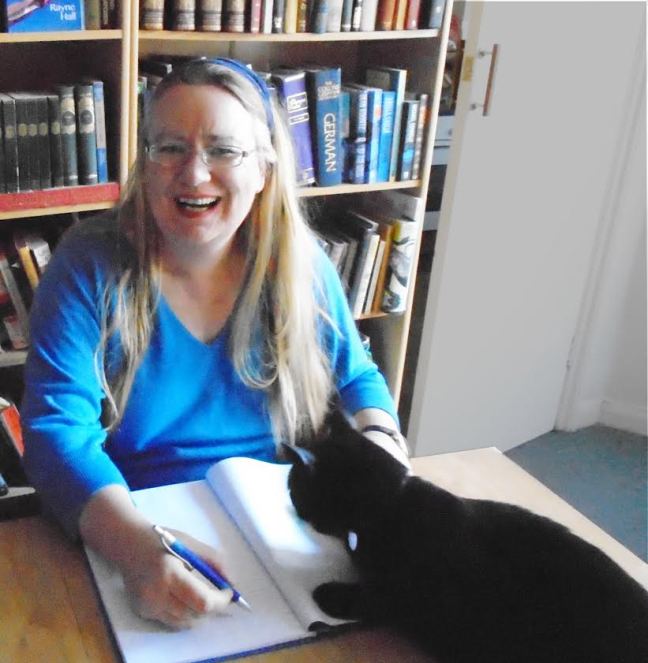
Rayne Hall is a Publishing guide, writing coach, the bestselling author of the Writer’s Craft guides who has three decades of experience in the publishing industry as a publishing manager, editorial assistant, magazine editor, investigative journalist, production editor, literary agent, and publishing consultant. WHEW. But the most impressive feat to me is that…
SHE READS 500 BOOKS A YEAR!!!

Yes, you read that correctly.
LET US BEGIN OUR JOURNEY INTO THE MIND OF ONE OF THE MOST VORACIOUS READERS ALIVE
Who influenced you in your early reading habits as a child?
I learnt to read early. At the age of 4, I startled my parents by reading a political newspaper headline out loud. They were aghast, because they had not taught me to read. I had somehow worked out the meaning of letters myself, though I can’t remember how I did it.
From then on, I devoured books, starting with small-sized illustrated children’s books from the ‘Pixi’ series which was popular in Germany at the time. Soon I grew bored and read bigger books, borrowed from my elder sister who encouraged me. There were a lot of religious books in our home, mostly gifts from a great-uncle who was a catholic priest, and they included some really exciting children’s stories. I also remember a book filled with stories about the lives and deaths of martyrs. That was scary stuff – it seemed that the reward for a pious life was to get crucified, burnt alive or eaten by lions!
When I finally went to school to be taught to read, I was of course bored. After reading about kings, robbers, goblins and pirates, the school book with pages of nothing but ‘i I i’ and ‘l l l’ held no interest. Even in year two, when we finally got a textbook with stories, I was frustrated, because I’d read the whole book on the first day which left nothing new for the rest of the year.
This is rather AMAZING. You seemed to devour books even before you were officially taught to read! You’re probably the most voracious reader yet. You’re voracity is off the charts!

*Who were your childhood favorite authors?
You may not have heard of them, because they’re German authors: Hans Baumann, Karl May, Anna Müller-Tannewitz. Erich Kästner. I was also a fan of Enid Blyton and devoured every book available in German translation. Once a week I took the bus into town and borrowed as many library books as the library card allowed, which was never enough. Eventually, I’d read every book in the library’s children’s section.
Now that’s an amazing feat. Reading EVERY book in the library’s children’s section. That’s completely mind-boggling. You just elicited the WOW factor.

*Tell us how you came to read around 500 books a year
I read very, very fast.
It’s not just your appetite for books, but also the pace of reading that’s stunning.

READING AT SUPERSONIC VORACITY LEVELS
*That comes down to about 10 books per week and 41 per month. That’s a lot of books. Are a lot of them forgettable? Which one’s touch you the most and why?
I easily read a book a day, often more. Sometimes I don’t read for a day or two, but that’s rare.
I remember most of them, although not consciously. I often buy or borrow a book which feels familiar after a few pages and after a couple of chapters it’s clear that I’ve already read it many years ago.
If a book is forgettable, I won’t waste time reading anything by that author again. I wish Amazon had a feature for marking authors I don’t want to read again. On the other hand, if I loved a book, I immediately look for more works by that author.
You must have an awesome memory! Can I borrow some? There must be a longstanding history in the memory banks. I can only imagine.
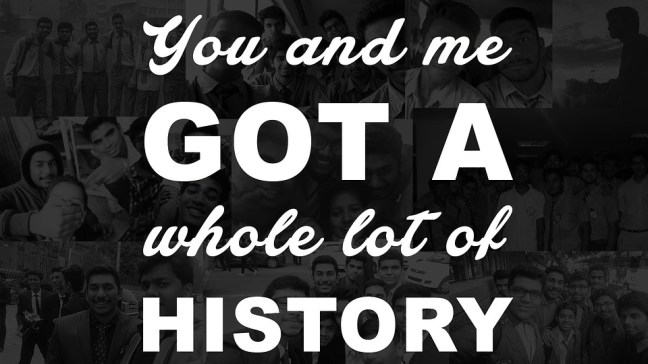
*In your motivation to read so many books, are you searching for something particular?
I seek the pleasure of reading, of experiencing different worlds, meeting new people, learning new things, going on adventures without putting myself in danger. Sometimes I look for excitement, sometimes for something to smile about, sometimes for information, inspiration or advice.
These are all so lovely. It’s amazing how we can experience it all through the written word. Exciting!
*What’s your method? Do you aim for a certain amount books per week or month?
Not at all. That would make reading a duty.
Well said.
*Do you have an outlet after accumulating so many experiences reading?
I’m not sure I understand your question. I always mean to review all the books I read, but I rarely get round to this, because I’m always busy reading the next book.
There’s a wealth of experience just waiting to be mined. I would love to pick your brain sometime.

AT THE SCENE OF THE CRIME…..
*You’re a very experienced reader who must have a keen eye. What are your 5 biggest pet peeves?
Let me think.
1. Characters who sigh and grunt all the time, and heave deep breaths to steady themselves on every page.
2. Over-use of ‘began to’ and ‘started to’.
3. Gratuitous sex scenes.
4. Head-hopping/point- of-view violations, i.e. when I’m reading the story and experiencing the events from inside the head of one of the characters, and then suddenly I’m in another character’s head. That jolts me out of the story.
5. Writers obviously natural talent but haven’t honed their skill to the full level and instead used self-publishing as a short-cut before they were great. Had they continued learning their craft and revising their works, their books could have been great.
These are all very good. Everyone’s pet peeves are different but some are more common than others. Head hopping or POV hopping is definitely one of the more frequent ones.

*How has reading affected your career in writing, editing and publishing?
I’ve become very aware of how important the free sample pages are. As a reader, I always download several samples, glance at the beginning, and decide which one I want to buy. Some books are appallingly written, and I won’t buy them. But I’ve also come across many books where the free sample had no real content. The sample was taken up by legal disclaimers, forewords, quotes, lists of the author’s other works, review excerpts – but no taste of the actual book. So I didn’t buy them. This has taught me to arrange the front matter in away that leads the reader straight into the main content.
I spot common mistakes, and see what kind of mistakes writers make most. These range from lay/lie confusions to early flashbacks. Knowing what mistakes writers make is useful when I guide writers in my classes, books and consultations.
I know which beginnings are overused, for example, the main character travelling to a destination, the main character waking up and readying himself for the day, the main character selecting a dress to wear for the special event. This knowledge helps me avoid those beginnings in my fiction, and it enables me to advise other writers.
It’s also the other way round: my writing and editing work influences how I read. I see flaws in books more than a ‘normal’ reader does. If I wasn’t a writer and editor myself, I would probably still perceive those flaws, but I couldn’t put a finger on what exactly is wrong, I would just sense vaguely that ‘I don’t like this’.
You must have a very keen eyes.

*As a person who has read probably thousands of books, what has changed over the years?
Are you asking about books, or about me? I’ll answer both. What’s changed about me is that I’ve become less patient. I used to read at least two chapters before giving up on a book I didn’t like. Now I don’t even read two pages. Two paragraphs is enough to tell me whether a book is worth reading or not. The free sample downloads are great for this. I guess I’ve become blasé in my assessment what books are worth reading.
What’s changed about books over the years? A lot! Thanks to ebooks and the indie publishing revolution, far more books are getting published, and a much wider choice is available for any taste. Books have become available catering to very specific niches. There’s more freedom for readers to choose, and more freedom for writers to write what they want. All this is wonderful.
The downside of this is that a lot of sub-standard stuff gets published. New authors don’t realise that their book isn’t good enough yet, and some people hire ghostwriters for ridiculously low rates to churn out book after book. But I don’t think this is a big problem, because readers can choose what they want to read, thanks to the ‘look inside’ and ‘download sample’ functions.
There’s a lot more interactions between readers and authors. In part that’s because in many cases, middlemen have been removed from the publishing process, and in part its thanks to easy online communications. In the past, if I wanted to write to an author, I had to write a snail mail letter c/o the publisher, who would forward it to the agent, who would forward it to the author, and if I was lucky, the author would reply. Most of the time, I didn’t get a reply, because the author was long dead (and I didn’t realise that), because the publisher hadn’t bothered to forward my letter (withholding fan mail was common practice) or because the author couldn’t be bothered – and I didn’t know which was the case. Nowadays, I simply search the author online, send them a message via their website, leave a comment on their blog or write a quick tweet. And most of the time, I get a reply. That’s wonderful. Often there’s a dialogue between authors and readers that wasn’t possible in the past.
Book buying has become easier. I remember how long I had to wait to get a book I wanted. I had to go to a book shop, order the book, wait for days or weeks for it to arrive… and then it was often a disappointment.
Now I click ‘download sample’, dip into those pages, and if I like it, I click ‘buy now’ and have the book within seconds.
Regarding book content, I’ve noticed that there’s a lot more sex in fiction. Erotic fiction has become easily available in a wide range of subcategories catering to every taste. It think the emergence of ebooks enabled that, because readers can buy the book they want without exposing their interest, and they can read it on their Kindles without anyone seeing. I remember as a twenty-year- old I wanted to read some erotic fiction. I waited until I went on a journey by railway, then at the destination station, where nobody knew me, I scanned the shelf for such titles and had to make a rapid choice without test-reading. Hot and blushing with embarrassment, I took my selection to the cashier. Back at home, I wrapped the books to hide the covers, less any visitors would see the titles. When I finally got to reading them, they were often disgusting stuff I didn’t like, because of the narrow available range and the hurried decisions. These days, I could browse at leisure, pick a book I really wanted to read, and read it discreetly on my Kindle. I’m no longer interested in reading erotica – I choose not to – but I think it’s good that other adults have the freedom to read erotica if they choose. And they don’t even have go through the mortifying process of taking the books to a cashier.
Sex has also become more common in other genres – so common that sometimes it’s difficult to find a book without sex in it. Personally, I prefer erotic tension to erotic actions, and when characters have sex, I prefer it if they keep their bedroom doors closed. I get annoyed when sex scenes are forced on me. I remember wanting to read some good urban fantasy novel and every one of them had gratuitous sex. Of course, the latest development is the rise of the ‘chaste’ book. In almost any genre, it’s possible to search for ‘chaste’ or ‘clean read’ books. That’s part of the diversity and increased choice, and is good.
In crime fiction – cosy mysteries and thrillers – specific real locations have come to play a much bigger role than they used to. Whole series are set in Edinburgh or in Colorado or wherever, often the place where the author lives. This local flavour has become part of the pleasure of reading crime fiction.
In non-fiction, I’ve observed that advice books are increasingly based on the author’s experiences, and include first-person sections. This makes the books more authentic and personal.
This is great info indeed, thanks!

*As an experienced reader, in your opinion, what makes a good book?
My answer would be different depending on what kind of book. A good book is a book that gives me what I want – and what I want differs from day to day and genre to genre.
I love this answer. It’s so succinct and to the point.
THANK YOU RAYNE
************
A good book is a book that gives me what I want – and what I want differs from day to day and genre to genre.- Rayne Hall
************
Connect with Rayne Hall!
@RayneHall, raynehall.com, contact
Writer’s Craft Series
Amazon Author Page
Suscribe to mailing list!
HERE’S A SAMPLE OF SOME OF HER BOOKS



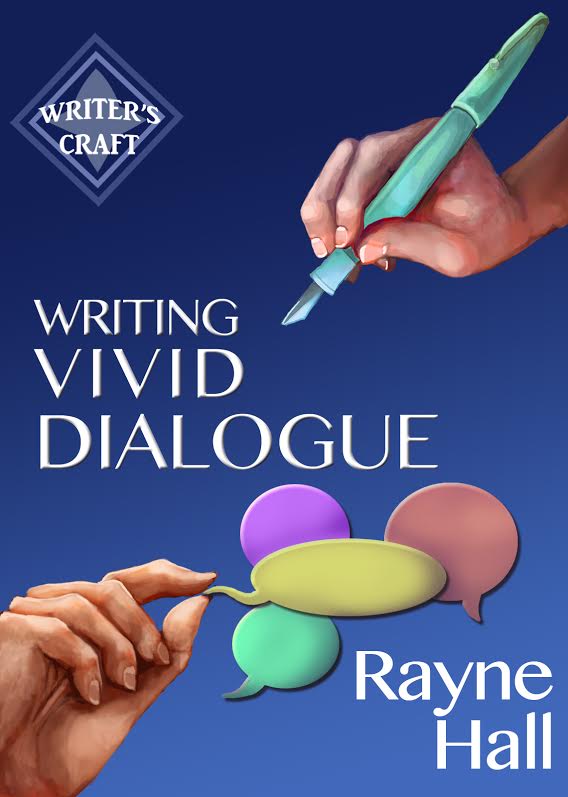


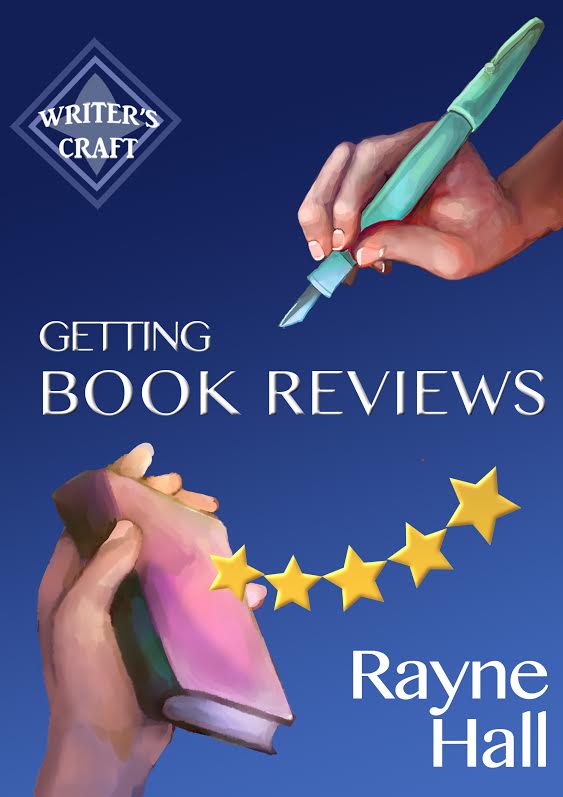





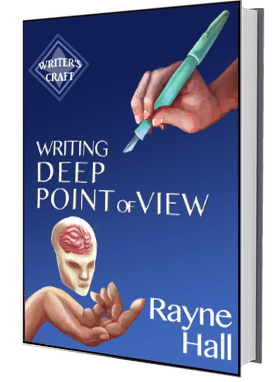
___________________________________________________________
Reading is a basic tool in the living of a good life. -Mortimer Adler
************
Reading a good book is living life dangerously- Benjamin Thomas
************
_____________________________________________________________
COME AND JOIN US AGAIN ON THE TRAIN!
Benjamin Thomas
@thewritingtrain
http://www.thewritingtrain.com


Thanks for featuring me. I’ve never realised how unusual my fast reading habit is. Of course I’ve always known that I was reading more and faster than most people, but I didn’t really think about how much more and how much faster that was. 🙂
LikeLiked by 2 people
Hi Rayne. I wish I could read that fast. Thanks for participating your time is appreciated. 🙂
LikeLiked by 1 person
Good morning Rayne and Benjamin. I love the Writers Craft series; I own several. But in particular, Writing Deep POV and Writing Vivid Settings are two resources I could not live without! Thanks for an outstanding view into reading and writing.
LikeLiked by 1 person
Mornin! I’ve been thinking of Deep POV and setting to for some reason. Thx, have a great day!
LikeLiked by 1 person
Well, you know. Great minds…
LikeLiked by 1 person
Hah!
LikeLiked by 1 person
Hi Sherrie,
It’s interesting that Writing Deep PoV and Writing Vivid Settings are your favourites. I enjoyed writing them.
I’m currently planning the next books in the series, and I have so many ideas – at least another 40 books all wanting to be written! I’m writing fast, though not as fast as I read. 🙂 So I wonder, what books would you like to see in the Writer’s Craft series? If you had a magic wand and could wish a new book in the series, what might it be?
Rayne
LikeLiked by 1 person
I’m not a very emotional person, so I struggle with writing character’s emotions. The actions and body language that go with emotion escape me. What I am decent at tapping into is how to put on the tough face and get through it. That’s how I was raised and how I’ve handled some very deep tragedies in my own life. I’d love to read your interpretation of character emotions as shown by characters, not told. Thanks so much for your interest!
LikeLike
Hi Sherrie,
The main thing to bear in mind when showing character emotion is to show it differently depending on whether it’s the point-of-view character or another character.
For the PoV’s emotions, show emotions by sharing the physical ‘symptoms’ of that emotion, e.g. “Her stomach soured.” “His throat constricted” “Her cheeks heated.”
For other character’s emotions, show the body language and physcial changes the PoV would notice: “Her lips tightened.” “He fidgeted with his cufflinks.” “Her cheeks reddened.”
I hope this helps.
Rayne
LikeLiked by 2 people
Rayne, thanks so much for the advice. I will definitely put this to work in my novel!
LikeLiked by 1 person
Rayne, you’re truly an inspiration for both readers and writers. I have one question for you. How do you manage to read so fast and process the material at the same time? Is it the same with non-fiction?
LikeLiked by 1 person
Oh yes, it’s the same with non-fiction.
LikeLiked by 1 person
But I’m afraid I can’t explain ‘how’ – it’s just natural.
LikeLiked by 1 person
I just noticed the cover of “Writing Fight Scenes” and it reminded me of my own pet peeves — characters (even ones who supposedly know what they’re doing) who attack with the knife held OVER THEIR HEADS like it’s made of narrativium or something. The hand on the cover is actually holding the knife correctly for once! Yay for research! 😀
LikeLiked by 1 person
Hi Aimee,
That’s interesting that you say the person on the cover is holding the knife correctly. Some people told me it’s wrong. 🙂
I know what you mean. I’ ve seen far too many book covers (usually historical romance) where the hero is gripping the sword blade with his bare hands, or has a dagger without sheath stuck in the front of his belt, apparently intent on self-castration.
Attacking with the knife held over the head… well, there are a few situations where this might make sense. Very few. I wouldn’t want to hit someone from above, because the bony skull would deflect the knife, and in the meantime my body would be defenseless. Much better to use the opportunity to stab the opponent in the abdomen or to slash their knife hand or something. But cover artists often go for the visual appeal of the composition instead of the plausibility.
With the Writing Fight Scenes book cover, the artist and I had to look for a compromise. The hand holding the knife had to fit into the same space as the hand holding other objects on the other covers in the series, and be of the same proportions as the hand at the top, so most typical knife-holding poses were out. That’s why we chose this unusual but still plausible pose.
LikeLiked by 1 person
I liked the interview.
Both questions and answers.
I read another interviews with Rayne and fast reading is just one the interesting things about her. It’s significant how well she know books. Everything about them.
One of her opinions I share completely is that the book is much better when the author takes the setting immediately from his surroundings. This kind of setting is always visual, alive and picture-like. You see the place when you read about it.
Of course, it’s good when the author describes the places he’d never seen and does that good, but nevertheless, it’s never the same.
LikeLiked by 1 person
Yes, it’s a matter of authenticity. Imagination is a great thing, but imagination paired with authenticity has real power.
LikeLiked by 1 person
Great interview! You remind me of a younger version of myself, but times ten. I also loved Enid Blyton books and tried to read as many of them as I could. It’s amazing that you still find the time to read so many books. I miss doing that. With the amount of time consumed by school, I’m mostly reading something science-related instead of a good novel.
LikeLiked by 1 person
It racks my brain how someone could read that many books in one year, and remember most of them! Rayne is very unique. Thanks for coming by!
LikeLike
I read books for work too – mostly business and marketing books. I include them in the monthly book count.
LikeLiked by 1 person
This is a great interview and helpful as always. And I do think that’s a great accomplishment to read 500 books a year. I would love to try and get that many in.
LikeLiked by 1 person
Hi Christine! Thanks for stopping by.
LikeLike
I’ve actually tried to read fewer books. One month I read only ten… and I got severe withdrawal symptoms!
LikeLiked by 1 person